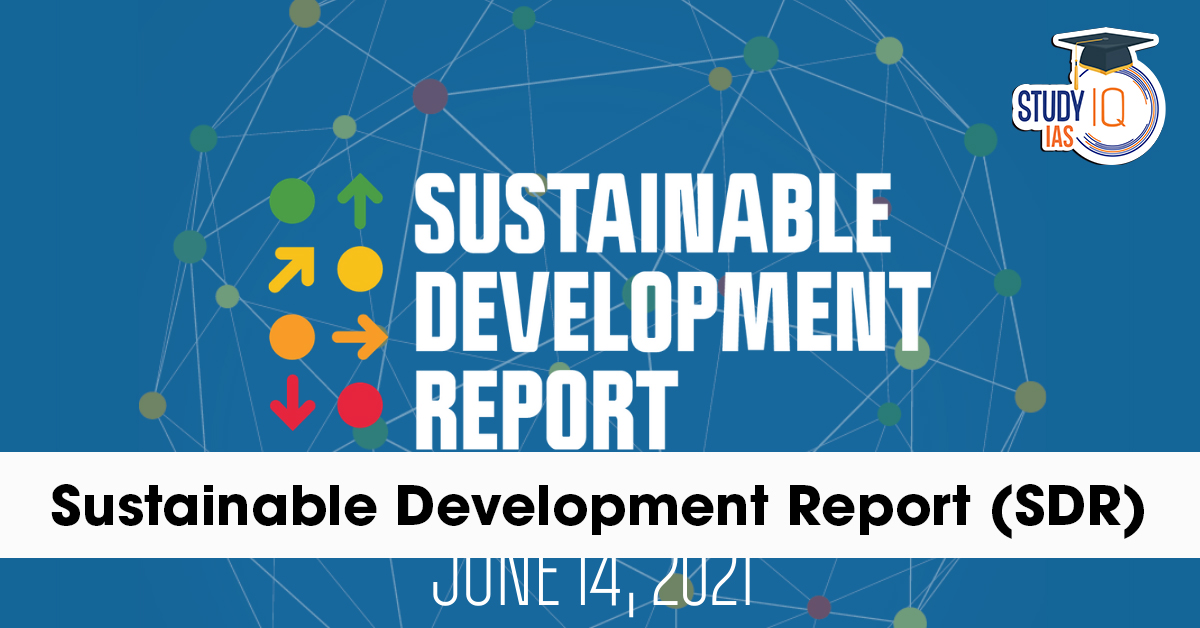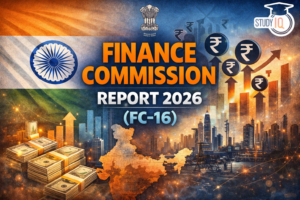Table of Contents
Context: The 10th edition of the Sustainable Development Report (SDR) 2025 was released.
About Sustainable Development Report (SDR) 2025
- What it is: The world’s most authoritative annual ranking of progress toward the Sustainable Development Goals (SDGs) for 193 UN member states.
- Released by: UN Sustainable Development Solutions Network (SDSN).
- Focus of 2025 Edition:
- Financing SDGs by 2030.
- Reforming the Global Financial Architecture (GFA) to address development inequality.
- Top 3 Countries:
- Finland
- Sweden
- Denmark
Key Highlights of Sustainable Development Report (SDR) 2025
- Strong Global Commitment: 190 of 193 UN member states submitted Voluntary National Reviews (VNRs)—a sign of high political engagement.
- Regional Leaders: East and South Asia showed the fastest progress since 2015, thanks to economic growth and targeted policy reforms.
- Top Improvers in Score: Benin (+14.5), Nepal (+11.1), UAE (+9.9), Peru (+8.7)
- European Dominance: 19 of the top 20 SDG performers are from Europe, highlighting their investment in welfare, education, and green energy.
- Global Lag: None of the 17 SDGs are fully on track
- Only 17% of SDG targets are currently progressing.
- Multilateralism Index: Barbados ranked 1st in commitment to UN-led multilateralism.
- USA ranked last (193rd), due to recent withdrawals from key global treaties.
- Fiscal Space Gap: Nearly 50% of countries lack the financial capacity to implement SDG-linked welfare programs.
- Global Financial Inequality: The current Global Financial Architecture (GFA) disproportionately favours wealthy nations, depriving EMDEs (Emerging Markets and Developing Economies) of capital.
India’s Performance in SDR 2025
- Rank: 99th place – India enters the Top 100 for the first time in SDR history.
- Score: Shows steady improvement, especially in digital access and social services.
Regional Comparison
- China: 49th
- India: 99th
- Bangladesh: 114th
- Pakistan: 140th
Progress Areas
- SDG 3 (Healthcare)
- SDG 7 (Electricity Access)
- SDG 9 (Digital Infrastructure)
Key Challenges
- SDG 2: Rising obesity
- SDG 13: Weak climate action
- SDG 16: Press freedom and institutional transparency
Key Global Challenges to SDG Progress
- Geopolitical Conflicts: Wars and unrest disrupt SDG implementation, especially in fragile states.
- Limited Fiscal Capacity: Debt and low revenue limit the ability to invest in health, education, and green tech.
- Climate Crisis: Climate change worsens inequality, food insecurity, and biodiversity loss.
- Unfair Financial Systems: GFA continues to benefit richer countries while EMDEs face capital shortages.
- Institutional Weaknesses: Poor governance and lack of data hinder evidence-based SDG planning.


 Free Cash Schemes Boom in India: Finance...
Free Cash Schemes Boom in India: Finance...
 Finance Commission Report 2026 (FC-16): ...
Finance Commission Report 2026 (FC-16): ...
 India–US Trade Deal 2026: Key Features...
India–US Trade Deal 2026: Key Features...

























